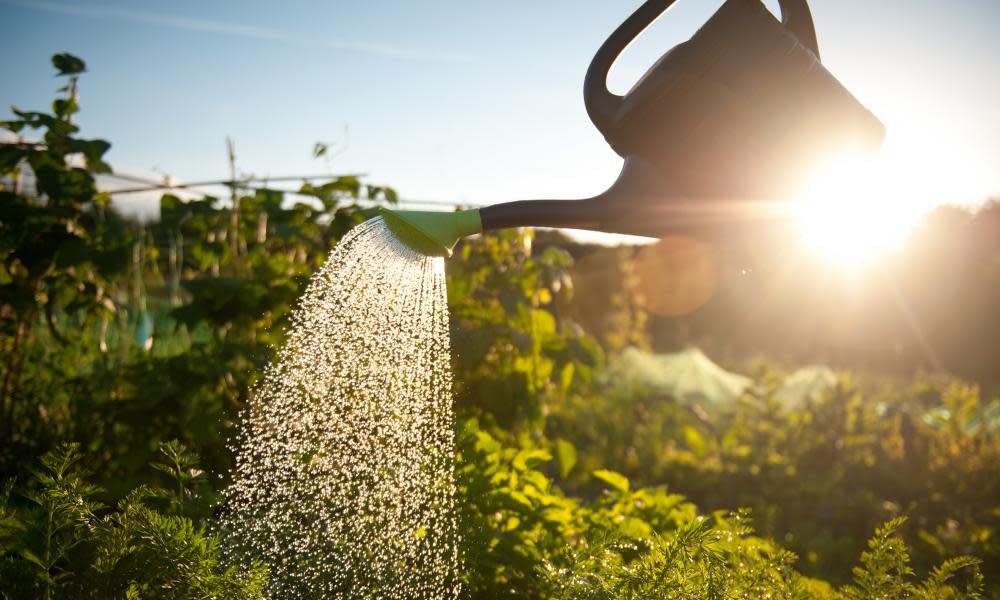A 30-year drought may be coming: here’s how you can save water

The sun is shining and we are due a hot bank holiday Monday, so it must be time for a drought story. And not just any old drought, but one stretching into the 2050s and beyond, according to the Environment Agency, which warns that our use of water is unsustainable. While the agency puts much of its focus on the need for companies to change their behaviour, especially by reducing leakage, there are practical steps we can all take.
Measure your water use
The first step is not to take the unlimited use of water for granted. The Energy Saving Trust’s online water energy calculator allows you to work out how much you use. The average person in the UK household consumes 141l a day, compared with 121l a day in Germany, according to the consumer website Discover Water.
Get a water meter
Unless you are living in a large household, a meter is likely to save you money. They are standard in new builds, but anyone can ask their water company to install them (for free except, for reasons unknown, in Scotland).
Hire a good plumber
“Plumbers have a big role to play in terms of delivering water efficiency,” says Simon Gordon-Walker, a director at Bristol-based water specialists Artesia Consulting. “People need to go to professional plumbers rather than always looking at the DIY or the cheap option. They wouldn’t do that with their electricity supply or their gas system. A leaking toilet can lose up to 400 litres a day and, without a meter, there’s not really much incentive for consumers to do anything about it.”
Remember the small things
The small things add up: don’t fill up the bath too much; take shorter showers; don’t overfill the kettle; wash fruit in a bowl rather than under a running tap; don’t run the tap continuously while cleaning your teeth; use a watering can rather than a hose or sprinkler; only switch on the dishwasher and washing machine when you have a full load (that also saves energy and thus cuts your fuel bills).
Gadgets
Go for appliances that put a premium on water and energy use; install a showerhead that restricts the water flow, and uses an aerator to give a fine spray and has a timer; get a dual-flush toilet which uses far less water than an old-style one; put a water butt in the garden to collect rainwater; you can even get baths that are contoured to make it feel as if you are having a luxuriously deep bath when the volume of water being used is relatively low. Although, if you take saving water seriously, a bath will be an occasional treat, and you will generally be having brief showers under your eco-showerhead.

 Yahoo News
Yahoo News 
